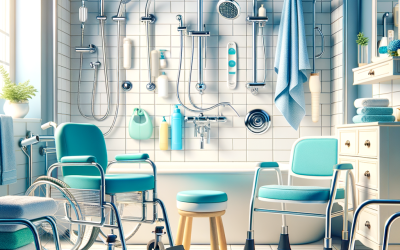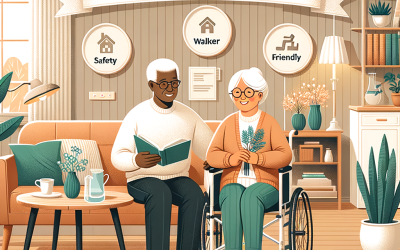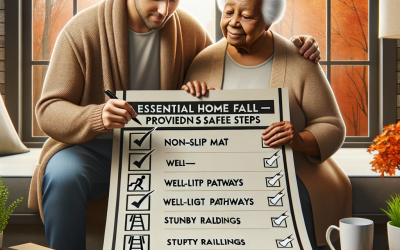Essential Home Fall-Prevention Tips for Seniors: Must-Have Safety measures are crucial for maintaining health, independence, and peace of mind. As a caregiver with years of experience, I’ve seen firsthand how simple changes can make a world of difference. By making your home safer, you can help your loved ones stay independent longer.
Understanding the Importance of Fall Prevention
Falls are a leading cause of injury among seniors, but with mindfulness and planning, they can often be prevented. It’s heartbreaking to witness the aftermath of a fall, which is why fall prevention for seniors should be a top priority for every family.
Creating a Home Safety Checklist
A thorough home safety checklist can serve as a guide to identify potential hazards. Walking through each room and noting risks is a good starting place. Here’s how you can begin:
- Clutter-Free Zones: Keep floors clear of clutter. Avoid stacking books and papers or leaving items in walkways.
- Non-Slip Rugs: Use rugs with non-slip backings or secure them with double-sided tape.
- Lighting: Ensure all areas are well-lit. Night lights are crucial in bedrooms, hallways, and bathrooms.
- Walking Aids: Keep canes, walkers, and other aids within reach and in good condition.
Essential Home Fall-Prevention Products
Investing in certain products can significantly enhance safety. Here are a few common items that can help:
| Item | Pros | Cons |
|---|---|---|
| Grab Bars | Provide support in bathrooms | May require professional installation |
| Shower Chairs | Assist with bathing safely | Can be bulky |
| Raised Toilet Seats | Reduce strain when sitting and standing | May not fit all toilets |
Fall Prevention Tips for Seniors
Adopting daily habits can also significantly reduce fall risk:
- Stay Active: Regular exercise strengthens muscles and improves balance. Consider activities like walking, tai chi, or gentle yoga.
- Footwear Choices: Wear sturdy, non-slip shoes. Avoid slippers or shoes without proper support.
- Regular Check-Ups: Schedule eye exams and medication reviews to manage any potential side effects or vision issues.
- Stay Hydrated: Dehydration can lead to dizziness. Encourage regular water intake.
Pros and Cons of Hiring Professional Help
- Pros: Professionals can offer experienced advice, provide physical assistance, and offer peace of mind.
- Cons: It can be costly, and finding a caregiver that matches the family’s needs might take time.
Setting Up a Support System
Creating a support system with family, friends, or neighbors can reinforce safety measures. Here’s how to do it:
- Regular Check-Ins: Arrange for regular calls or visits to ensure everything’s okay.
- Emergency Contacts: Keep a list of contacts near the phone for quick access in an emergency.
- Community Programs: Encourage involvement in community programs that focus on seniors’ well-being.
Embracing Technology for Fall Prevention
Technology can play a supportive role in enhancing safety:
- Medical Alert Systems: Devices that offer immediate assistance with a push of a button.
- Smart Home Features: Automated lighting, voice-activated assistants, and motion sensors.
Conclusion
Keeping our beloved seniors safe is a shared responsibility, and while accidents can happen, prevention is always the best approach. By following these fall prevention tips for seniors and utilizing a practical home safety checklist, you can significantly reduce risks. Let’s work together to create homes that nurture safety, comfort, and independence.
FAQ
Q: What should I do if a senior falls?
A: Stay calm, ensure they’re not injured, and call for help if necessary. Consider seeking advice from a healthcare provider for further assessment.
Q: How often should we review the home safety checklist?
A: Regularly, at least every six months, or after any significant changes in health or mobility.
Q: Are there any financial aids available for installing safety equipment?
A: Yes, some community programs and insurance policies offer support. Research locally or consult with social services for more information.




0 Comments